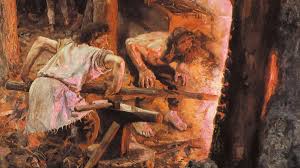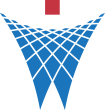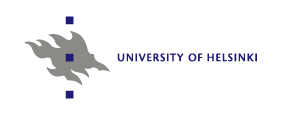INVITATION TO OPEN AND FREE WEBINAR
Semantic Computing Research Group (SeCo) at Aalto University and University of Helsinki (HELDIG) invites you to join the webinar:
 Forging of the Sampo, detail, A. Gallen-Kallela, 1893, National Gallery |
Digital Humanities in Action: Sampo Model and Portals for Cultural Heritage |
Thursday 29.10.2020, 13:00–17:00 (12:00-16:00 CET)
Online webinar (register below to get the Zoom link)
Abstract
This open and free webinar presents results of joint research at Aalto University and University of Helsinki (HELDIG), Semantic Computing Research Group (SeCo), on building an open national Semantic Web infrastructure with applications for Digital Humanities. In particular, the Sampo model and series of Sampo portals have been created that have had millions of users on the Web. The seminar presents key elements of the infrastructure and tools, and ten latest Sampo portals, five of which are already online, and five under development in ongoing research projects
To get a glimpse on what "Sampos" and the underlying data infrastructure are in practice, have a look at the short videos below:
- From Reassembling the Republic of Letters 1500-1800 to LetterSampo
- BiographySampo - Artificial Intelligence Reading Biographies for the Semantic Web
- AcademySampo – Finnish Academic People 1640-1899
- WarSampo – Finnish World War II on the Semantic Web
- Building a National Level Linked Open Data Infrastructure for Digital Humanities in Finland
This webinar continues SeCo group's tradition since the symposium "Semantic Web Kick-off in Finland 2001" in organizing open seminars, related to the Semantic Web and Linked Open Data.
PROGRAMME
The webinar in Zoom has been recorded on video. The whole webinar video is below, and direct links to particular presentations are given in the programme after the presentations:
13:00-13:15 Vision, History, and Realization
- Creating the Sampo Model and Sampo Series of Semantic Portals
Eero Hyvönen, HELDIG and Aalto
Presentation recording, slides, intro video 1, Sampos video 2
13:15-14:00 Infrastructure and Tools
Chair: Mikko Koho
- Linked Open Data Infrastructure for Digital Humanities in Finland (LODI4DH)
Jouni Tuominen, HELDIG and Aalto
Presentation recording, slides - Extracting Knowledge from Finnish Texts
Minna Tamper, HELDIG and Aalto
Presentation recording, slides - Sampo-UI Framework for Semantic Portal User Interfaces
Esko Ikkala, Aalto
Presentation recording, slides
14:00-14:10 Coffee Break
14:10-15:25 Forging Ten New Sampos I
Chair: Jouni Tuominen
- BiographySampo – Biographies on the Semantic Web
Eero Hyvönen, HELDIG and Aalto, and Kirsi Keravuori, Finnish Literature Society (SKS)
Presentation recording, slides, video - NameSampo – Workbench for Toponomastic Research
Esko Ikkala, Aalto, and Helinä Uusitalo, Institute for the Languages of Finland (Kotus)
Presentation recording, slides - WarVictimSampo 1914–1922 – Finnish Civil War on the Semantic Web
Heikki Rantala, Aalto, and Ilkka Jokipii, National Archives
Presentation recording, slides - HistorySampo – A Finnish Time Machine
Heikki Rantala, Aalto
Presentation recording, slides - AcademySampo – Finnish Academic People 1640–1899
Petri Leskinen, Aalto
Presentation recording, slides, video
Short Coffee Break
15:35-16:50 Forging Ten New Sampos II
Chair: Eero Hyvönen
- FindSampo – Archaeological Finds of Metal Detectorists
Mikko Koho, HELDIG and Aalto, and Ville Rohiola, Finnish Heritage Agency
Presentation recording, slides - LawSampo – Finnish Legislation and Case Law on the Semantic Web
Minna Tamper, HELDIG and Aalto, and Aki Hietanen, Ministry of Justice
Presentation recording, slides - ParliamentSampo – Finnish Parliament on the Semantic Web
Jouni Tuominen, HELDIG and Aalto, and Päivikki Karhula, Parliament of Finland
Presentation recording, slides - Mapping Manuscript Migrations
Mikko Koho, HELDIG and Aalto, and Toby Burrows, University of Oxford
Presentation recording, slides - LetterSampo – Historical Letters on the Semantic Web
Petri Leskinen, Aalto
Presentation recording, slides, video
16:50-17:00 Discussion and Conclusions
Registration
The webinar is open and free for everyone to join. Register using the form below to get your Zoom link for the webinar:


